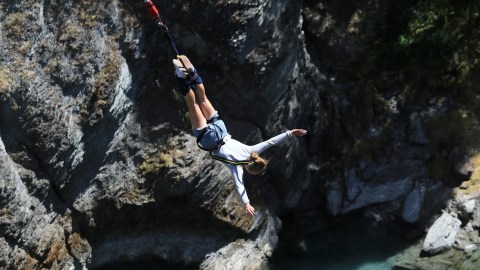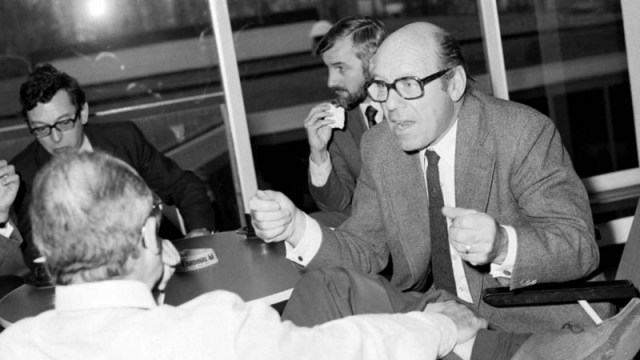Researchers were surprised to find bungee jumpers’ cognition was enhanced after a jump

It’s well-established in psychology that intense emotion and physiological arousal interfere with people’s ability to think straight.
Most theories explain this in terms of anxiety consuming mental resources and focusing attention on potential threats. Although it’s tricky to study this topic in the psych lab, a handful of field studies involving parachutists and emergency simulations have largely supported this picture. However, a team at the Autonomous University of Barcelona believe that not enough consideration has so far been given to what they call the “valence” of intense situations – whether or not the person sees the intense experience as positive or negative. To find out whether this makes a difference, Judit Castellà and her colleagues tested dozens of bungee jumpers (most of them first-timers) three times: 30 minutes before a 15M free fall jump; immediately afterwards; and again eight minutes after that.
The surprising findings, reported in Cognition and Emotion, suggest that when an intensely arousing experience is perceived positively, it may actually enhance cognition rather than be impairing. “Although we expected some degree of moderation, that is, an attenuation of the negative impact of high arousal reported in the literature, we did not predict an actual improvement or a total lack of impairment,” the researchers said.
At the three testing stages conducted on a 30M high bridge in Catalonia, the bungee jumpers rated how positive or negative they were feeling, and the intensity of those feelings. They also completed tests of their working memory (the ability to recall strings of digits); their ability to concentrate and pay attention (using what’s known as the Go/No Go Task); and their decision making (their ability to identify which of four packs of cards was the most financially rewarding over time). Their performance was compared with an age-matched group of control participants who completed all the same tests in a similar environment but who were not performing a jump.
As expected, the jumpers reported far more intense emotions than the control group. Importantly, the jumpers rated these feelings as highly positive before and especially after the jump. However the main finding is that working memory actually improved in the jumpers after their jump (but not in the controls), and there was a hint that the jumpers’ decision making might have improved too. Meanwhile, the jumpers’ attention performance was unaffected. In short, bungee jumping, although perceived as an intense emotional experience, was not found to impair cognition, and in fact enhanced aspects of it.
Castellà and her colleagues interpreted their findings in terms of the “Broaden and Build Theory” – the idea that positive emotions can make cognitive functions more flexible and can counteract the narrowing influence of negative emotions. This is just one small study and, as always, the results need replicating and extending. However, the researchers added that their findings could have practical relevance for the training of emergency responders or any professionals who need to make rapid decisions in intensely arousing situations. “Training these professionals to cope with emergency situations by enhancing and focusing on the positive emotions derived from their actions could improve – or at least not impair – their cognitive performance when facing threats.”
—Jump and free fall! Memory, attention, and decision-making processes in an extreme sport.
Christian Jarrett (@Psych_Writer) is Editor of BPS Research Digest.





